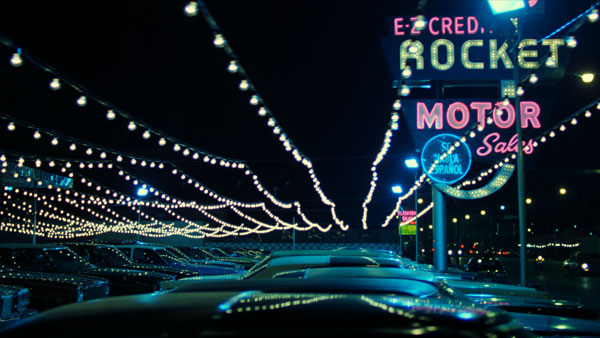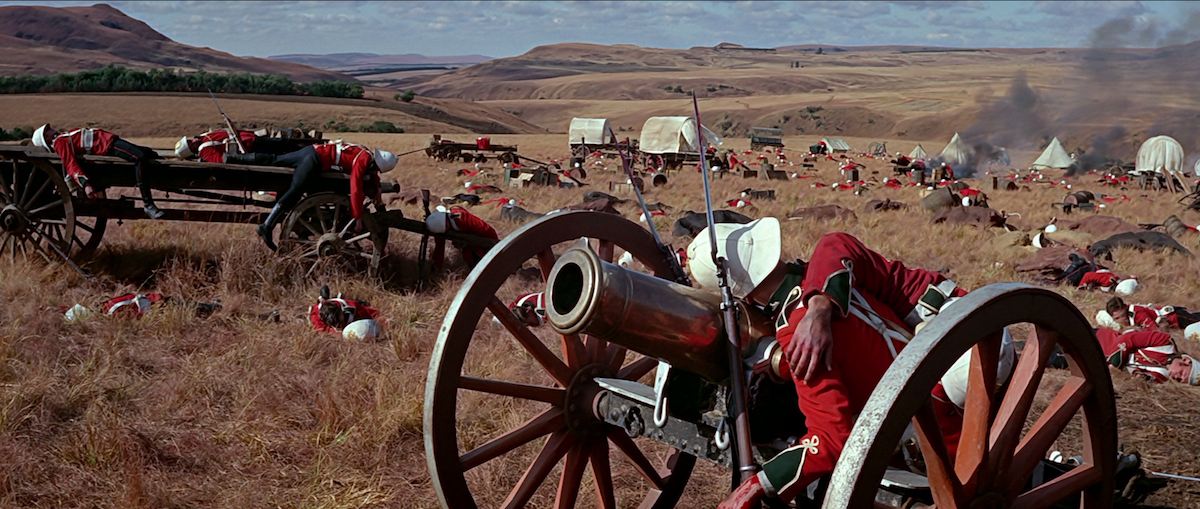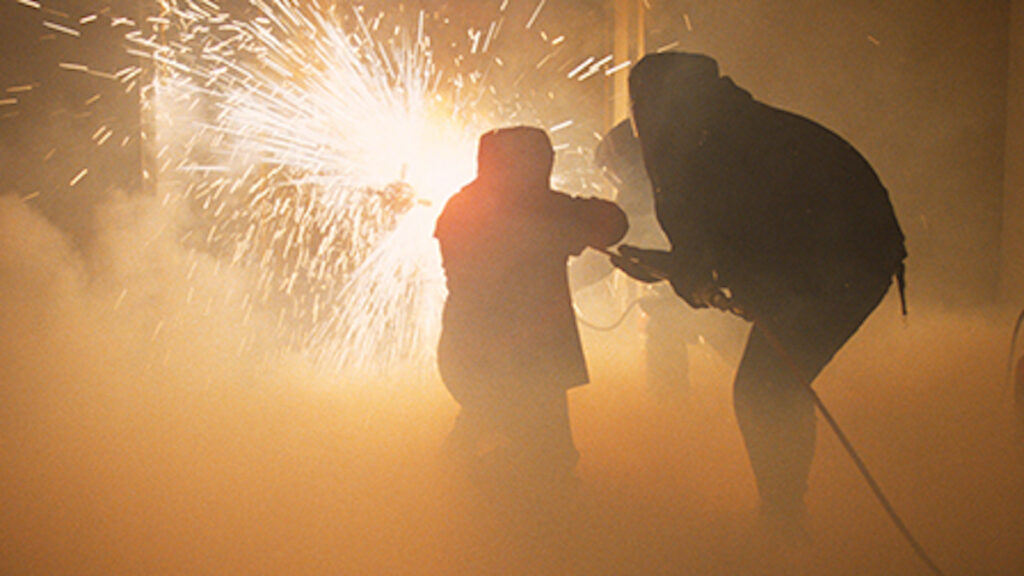“All The Boys Love Mandy Lane” (Anchor Bay/Starz)

Director Jonathan Levine (full disclosure: Mr. Levine, when
we met at the Sundance Film Festival in 2008, waxed highly effusive to me for
minutes on end about what a fan he was of the print edition of “Premiere”
magazine, which has tended to make me hold him in high esteem) has had to wait
almost seven years for his 2007 debut to reach audiences, and he sounds pretty
tired in the audio commentary for the movie. I found the film pretty good—a
not uninteresting amalgam of John Hughes, Tobe Hooper and (spoiler alert!)
(sort of) William March. The Blu-ray
looks okay but I suspect it could have been better—at several junctures this
feels like a halfhearted master off a digital intermediary, with the
summer-sun lens flares of Darren Genet’s cinematography registering well but
the night scenes coming in for some slightly distracting noise.—B-
“The Eddy Duchin Story” (Twilight Time)

This is a relatively stolid musical drama for “lightly
likable” director George Sidney, and as such hardly a funfest of “Harvey
Girls” proportion. And the sight of 40-year-old Tyrone Power making like “gotta
dance!” Gene Kelly, only here it’s piano-playing not dancing, in the
opening sequence is cringeworthy. But there are several reasons this biopic is
a cult fave and hence ripe for Blu-ray: One is breathtaking Cinemascope and the
other is an awful lot more Manhattan location shooting than was common in
Hollywood films of the time (this one’s 1954). The Central Park montage, about
a half hour in, is worth the price of the disc. This transfer is not from
totally pristine materials but it looks great for the most part. First-billed
Kim Novak sports thinned-out eyebrows that mess with her signature look but is
otherwise luscious. Certain buffs may speculate that the movie contains a plot
twist (of sorts) that was later arguably lifted by Alfred Hitchcock in “Psycho.”
Or not. —B+
“In The Mouth of Madness” (Scream Factory)

Going through the Scream Factory Blu-ray reissues of John
Carpenter’s work I’ve been very pleasantly surprised how well once-dismissed or
just underrated fare such as “Prince of Darkness” and “The Fog”
played for me, so I had high hopes for this 1994 picture that Carpenter made
from a screenplay by then-New Line executive Michael De Luca (full disclosure:
I once had a pretty spirited dinner out with De Luca and a few mutual pals
years back). Sadly, no. Carpenter’s visual acumen—which here comes across most
strongly in the montages rather than the framings, which is unusual—can’t
disguise the threadbare production values, which fail to convey whatever
verisimilitude De Luca’s more-confused-than-it-knows concept requires so as to
make any impact. The resultant film is rather shockingly dreary, despite the
varying tricks Carpenter pulls out of his cinematic kit bag. The transfer is
solid, though, as is the audio, and the commentary with Carpenter and
cinematographer Gary B. Kibbe is replete with cogently communicated tech-wonk
detail.—B-
“Thief” (Criterion)

This high-def beauty yields a fascinating insight into
Michael Mann’s visual style: even when he had 35 mm film, he wanted digital.
Check out the nightclub scene, before the start of Caan and Tuesday Weld’s
first “date”. Look at the shots of the band, and the tavern window behind the
band; Mann and cinematographer Donald Thorin use a diffusion filter (I
presume) that renders the lights coming in from the street almost as giant
rectangular pixels. It’s a startling effect, one of many the Blu-ray of this
groundbreaking 1981 movie reveals so vividly. The disc uses a 1995 commentary
(recorded for the MGM laser disc!) with Mann and James Caan that’s awkward and
perfunctory a lot of the time, and replete with funny anecdotes some of the
time; it’s not up to the actual Criterion standard, but it’s still a gem
because Caan clearly hates the idea of the whole thing and at the end proclaims
he’ll never do another again. And as far as I can glean, he has not. —A
“Zulu” (Twilight Time)

First things first: This is a super-strong visual
presentation of this arguably archetypal British action picture from 1964. The
whole thing is beautiful, frame by bloody frame. Second things second: it’s
still a damned squirmy sit for me. Audio commentator Lem Dobbs sounds pretty
irritated about charges of racism against the movie, and he’s got a point—as a
depiction of the tribal warriors and the situation they’re in, the movie is
extremely fair and scrupulous and doesn’t truck in “noble savage”
clichés. But the problems inherent in the very fact of the representation
remain, if you know what I’m saying and I think you might. Of course, your
mileage may vary in terms of Inhibition Of Entertainment Value. And to be fair,
the battle sequences are still pretty much on this side of unbeatable. —A












